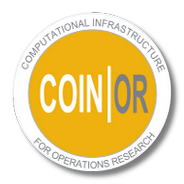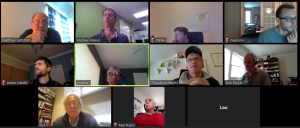Annual General Meeting Mar 21st 2018
All COIN-OR members are invited to participate to the general meeting that will take place on March 21st, 3:30PM EST (estimated duration: one hour).
The meeting will take place online via Zoom. Instructions to join are
given below. The Agenda is below.
The meeting serves several purposes.
1) Discussion of strategy for the upcoming year.
2) Discussion of the latest annual report: https://projects.coin-or.org/Events/wiki/AnnualReport2017
3) Installation of officers.
4) General discussion and feedback with board members.
Please join if your schedule allows!
How to join the Zoom teleconference:
Join from PC, Mac, Linux, iOS or Android: https://auckland.zoom.us/j/763149997
Or Telephone:
Dial(for higher quality, dial a number based on your current location):
New Zealand: +64 (0) 9 801 1188 or +64 (0) 4 831 8959
United States: +1 646 558 8656, +1 669 900 6833
Meeting ID: 763 149 997
International numbers available:
https://auckland.zoom.us/zoomconference?m=WFp0u8nITUcuYs0vwSKRks6QJZABgcPF
Agenda Items
1) Election of officers. President: Matthew Saltzman. Secretary: Giacomo Nannicini. Treasurer: TBA.
2) Discussion of the latest annual report: https://projects.coin-or.org/Events/wiki/AnnualReport2017
3) Consideration of the updated mission statement below.
4) General discussion and feedback with board members.
Proposed New Mission Statement:
The mission of the COIN-OR Foundation, Inc., is to create and disseminate knowledge related to all aspects of computational operations research. To accomplish this mission, the Foundation will:
- Promote and support community-driven development of open-source software that exploits state-of-the-art research in OR;
- Develop and deploy an academic peer review process and forum for publication and citation of open-source software for OR;
- Facilitate the sharing of OR technology among scholars and practitioners;
- Increase community awareness and use of software tools published by the Foundation;
- Support the establishment of open standards for data interchange and software interoperability.

